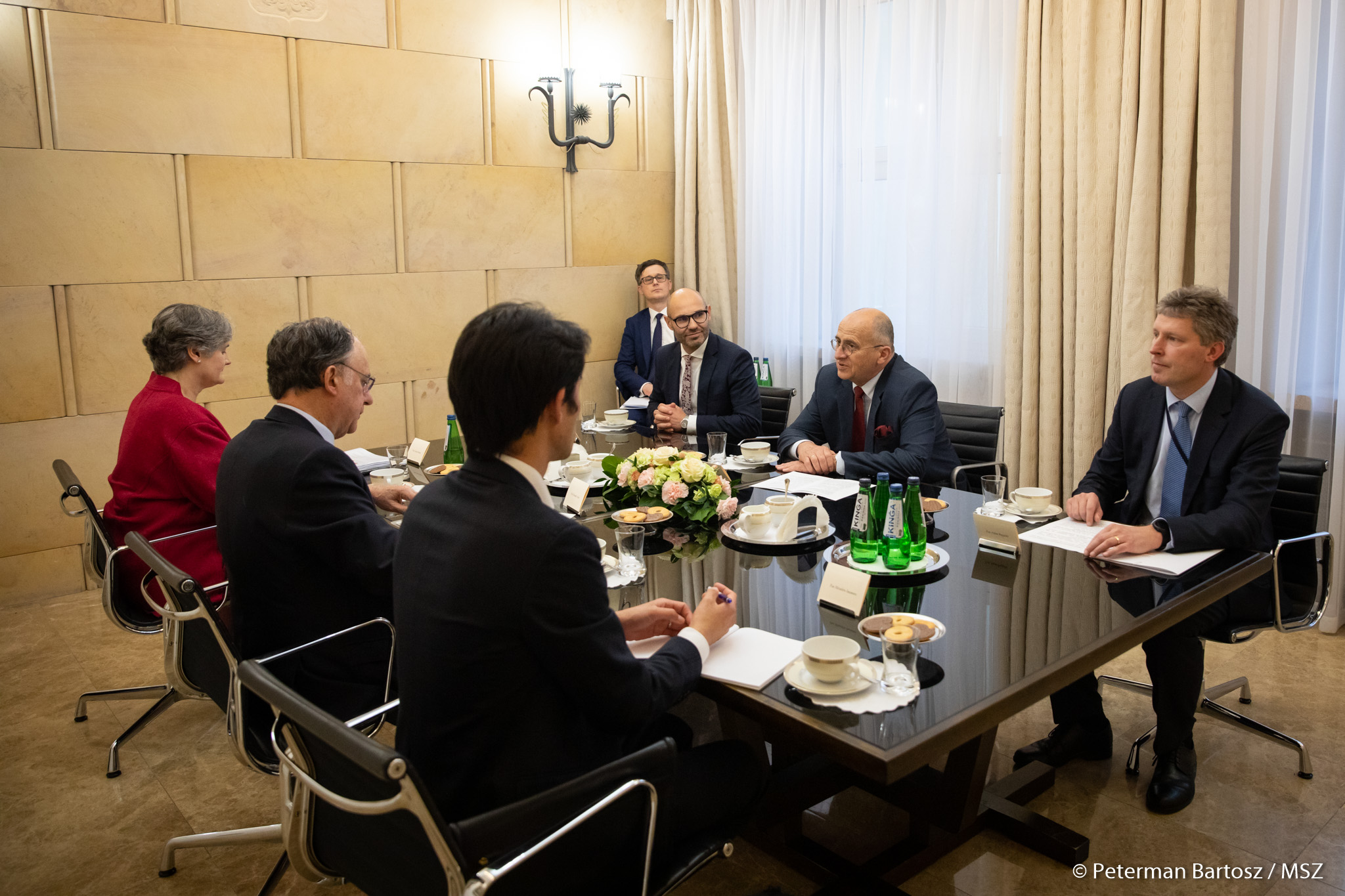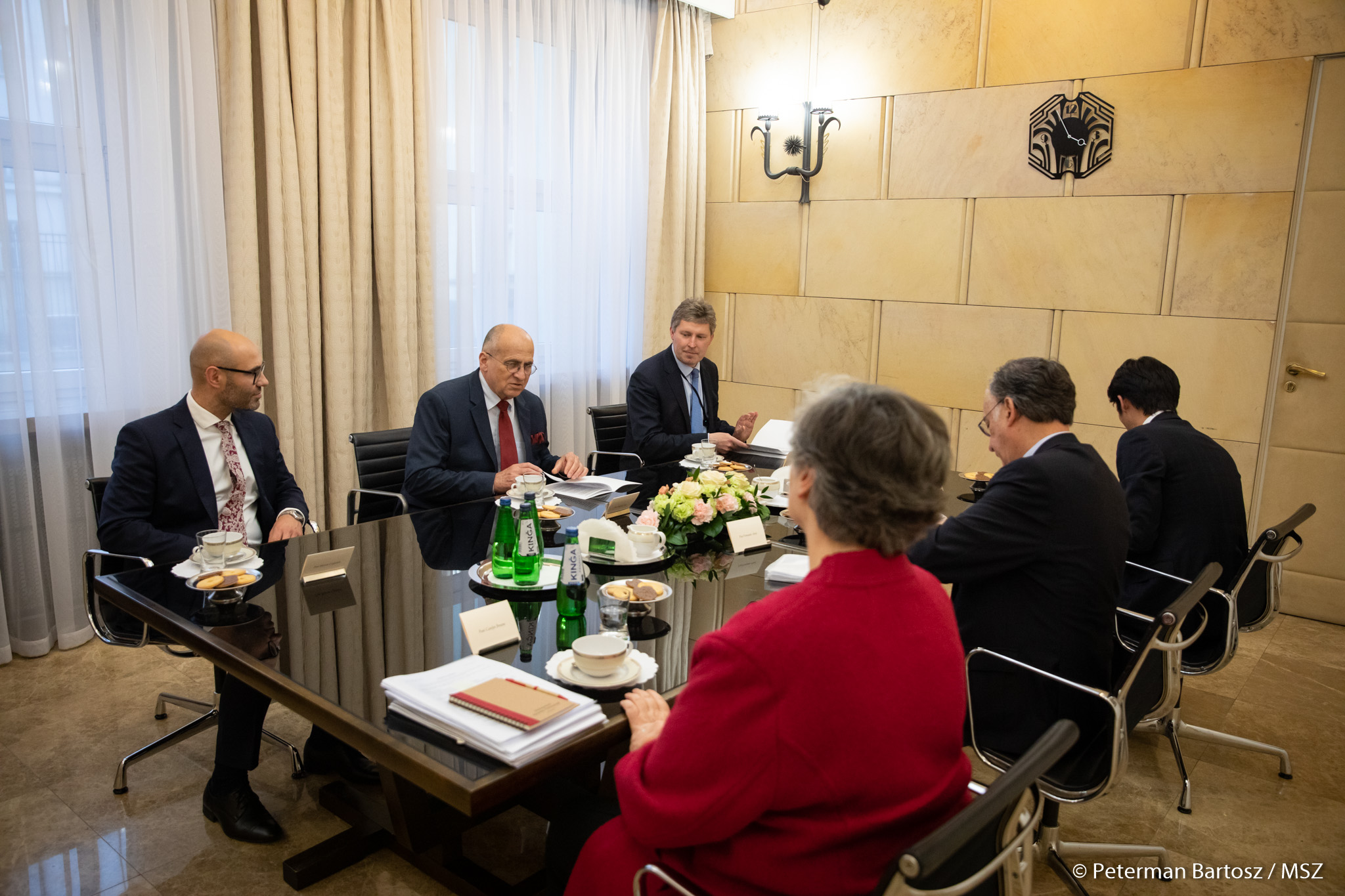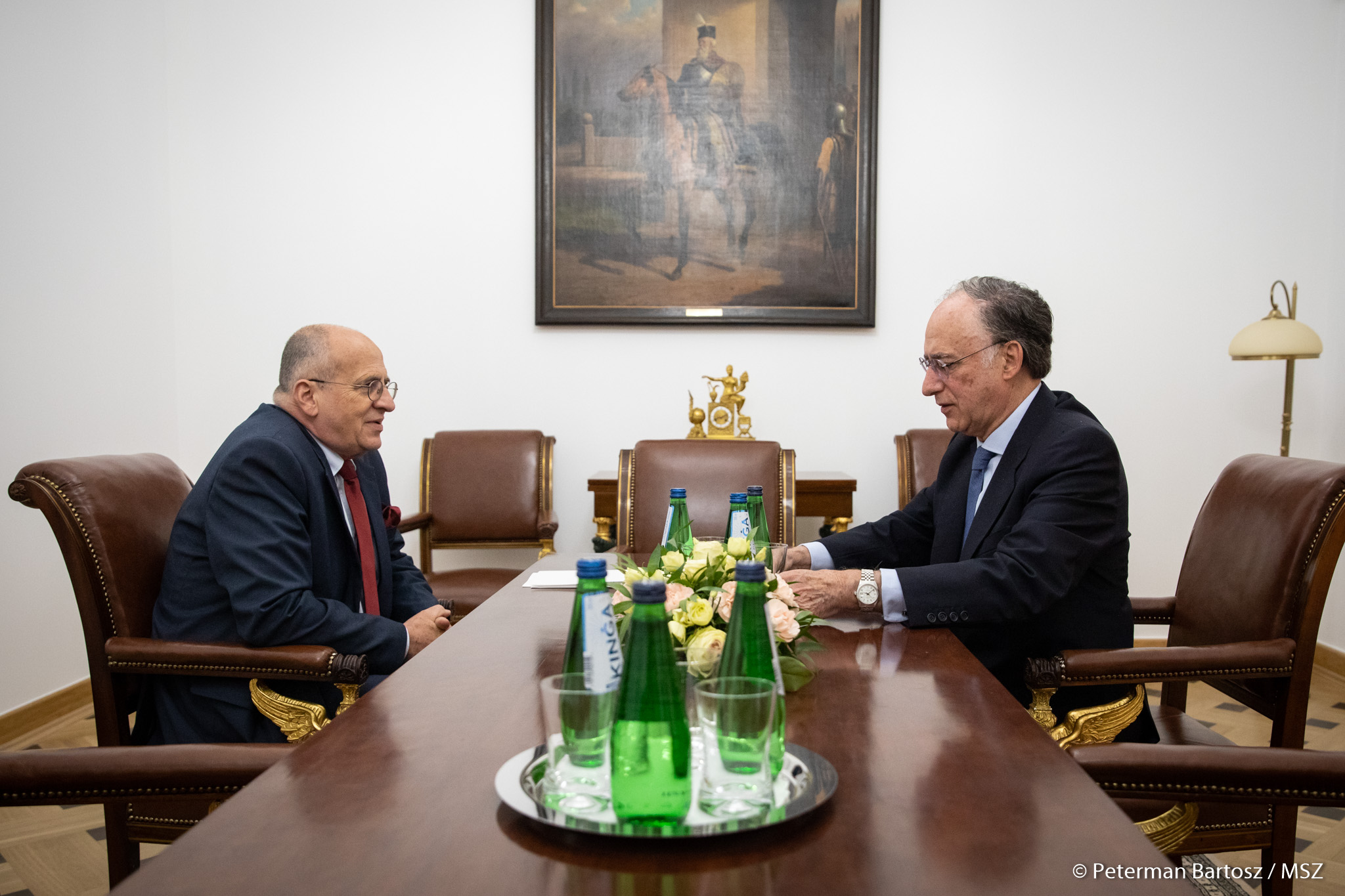Minister Zbigniew Rau talks to Director-General of Organisation for the Prohibition of Chemical Weapons
25.05.2022
At the invitation of Foreign Minister Zbigniew Rau, Director-General of the Organisation for the Prohibition of Chemical Weapons (OPCW), Ambassador Fernando Arias, paid a visit to Poland. During the meeting, Minister Rau discussed the consequences of Russia’s aggression against Ukraine for the international security architecture, referring to the threat of the use of chemical weapons in Ukraine and the need to provide support to Kyiv also by the OPCW.

“In the face of the Russian aggression against Ukraine and the emerging threat of the use of chemical weapons, the entire international community must unambiguously reaffirm its opposition to the violation of international law, an important pillar of which is the Chemical Weapons Convention,” said the top Polish diplomat. In the view of Minister Rau, the Russian Federation has unfortunately already violated this ban on several occasions, having used chemical weapons in the United Kingdom and against the Russian opposition leader Alexei Navalny. The chief of the Polish MFA stressed that every effort must be made to ensure that the Convention, upheld by the OPCW, should not be further violated, this time in Ukraine.
During his meeting with Director-General of the OPCW, Minister Zbigniew Rau also spoke about Poland’s commitment to the non-proliferation of chemical weapons and our support for the OPCW. The top Polish diplomat also noted the problem of chemical weapons dumped into the Baltic Sea and the OPCW’s possible role in their removal.
The OPCW head visited Warsaw almost exactly 25 years after the Convention on the Prohibition of Chemical Weapons came into force.
****
The Organisation for the Prohibition of Chemical Weapons (OPCW) is responsible for the implementation of the Convention on the Prohibition of Chemical Weapons. Poland ratified the Convention in 1995 and became an OPCW member once the Convention became effective in 1997. The Organisation ensures international supervision of the elimination process and the ban on the development of chemical weapons. In recognition of its efforts to eliminate chemical weapons, the OPCW was awarded the Nobel Peace Prize in 2013. Poland is one of the OPCW’s most active member states. Over the past two years, it has served its seventh term as member of the Organisation’s Executive Council. Poland is the sole author of a resolution supporting the implementation of the Convention on the Prohibition of Chemical Weapons and the OPCW, presented annually at the UN General Assembly.
Łukasz Jasina
MFA Press Spokesperson
Photo: B. Peterman/MFA




